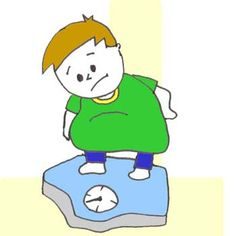- Home
- Editorial
- News
- Practice Guidelines
- Anesthesiology Guidelines
- Cancer Guidelines
- Cardiac Sciences Guidelines
- Critical Care Guidelines
- Dentistry Guidelines
- Dermatology Guidelines
- Diabetes and Endo Guidelines
- Diagnostics Guidelines
- ENT Guidelines
- Featured Practice Guidelines
- Gastroenterology Guidelines
- Geriatrics Guidelines
- Medicine Guidelines
- Nephrology Guidelines
- Neurosciences Guidelines
- Obs and Gynae Guidelines
- Ophthalmology Guidelines
- Orthopaedics Guidelines
- Paediatrics Guidelines
- Psychiatry Guidelines
- Pulmonology Guidelines
- Radiology Guidelines
- Surgery Guidelines
- Urology Guidelines
Parent's obesity may delay development in kids : Study

New York : Are your toddler's fingers and hands movement slow? Is his/her ability to relate to and interact with others as well as problem-solving skills delayed? Blame it on your obesity, researchers say.
The findings showed that apart from health related issues, children of obese mothers were nearly 70 per cent more likely to fail tests of fine motor skill the ability to control movement of small muscles, such as those in the fingers and hands by age 3, when compared to children of normal-weight mothers.
Children with obese fathers were 75 per cent more likely to fail measures of social competence an indicator of how well they were able to relate to and interact with others by age 3. Those born to extremely obese couples were nearly three times more likely to fail tests of problem-solving ability by age three.
"Our study is one of the few that also includes information about fathers, and our results suggest that dad's weight also has significant influence on child development," said lead author, Edwina Yeung, from the Eunice Kennedy Shriver National Institute of Child Health and Human Development (NICHD) in the US.
However, it is not yet known how parental obesity might increase children's risk for developmental delay.
Animal studies have indicated that obesity during pregnancy may promote inflammation, which could affect the foetal brain and could also affect the expression of genes in sperm.
If the link between parental obesity and developmental delays is confirmed, physicians may need to take parental weight into account when screening young children for delays and early interventional services, the researchers said.
For the study, appearing in the journal Pediatrics, the team examined more than 5,000 women in US, roughly four months after giving birth.

Disclaimer: This site is primarily intended for healthcare professionals. Any content/information on this website does not replace the advice of medical and/or health professionals and should not be construed as medical/diagnostic advice/endorsement or prescription. Use of this site is subject to our terms of use, privacy policy, advertisement policy. © 2020 Minerva Medical Treatment Pvt Ltd